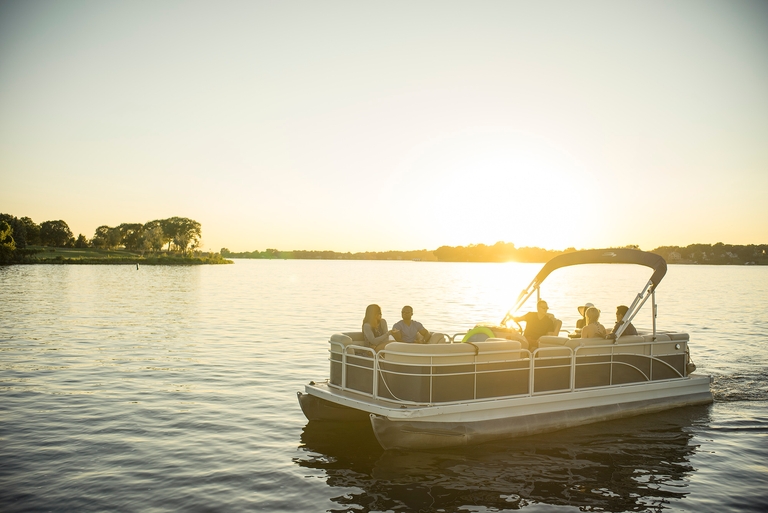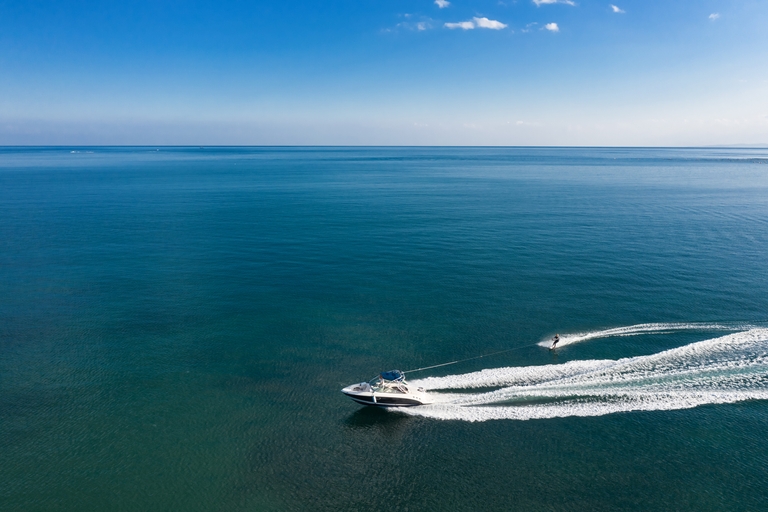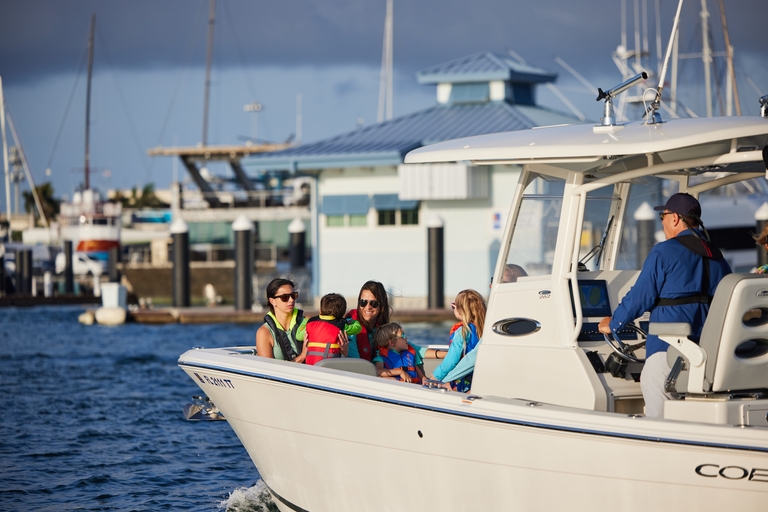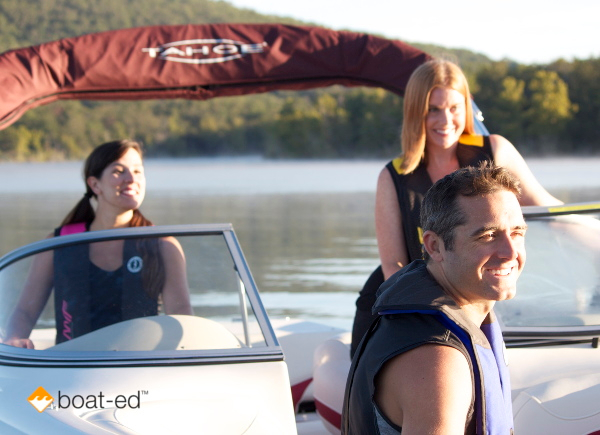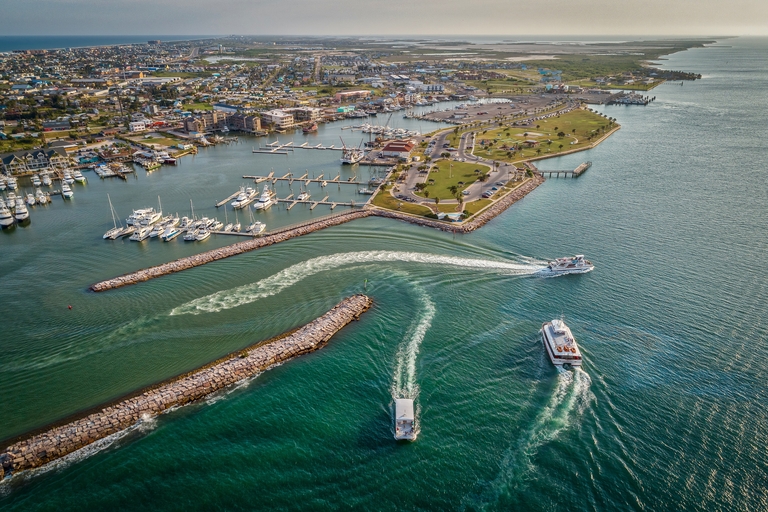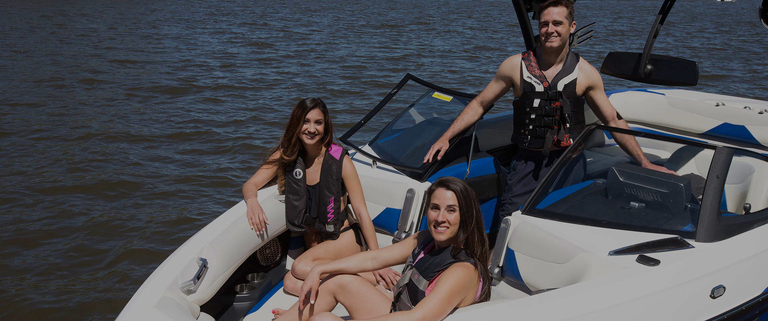What States Require a Boating License? Know Before You Boat
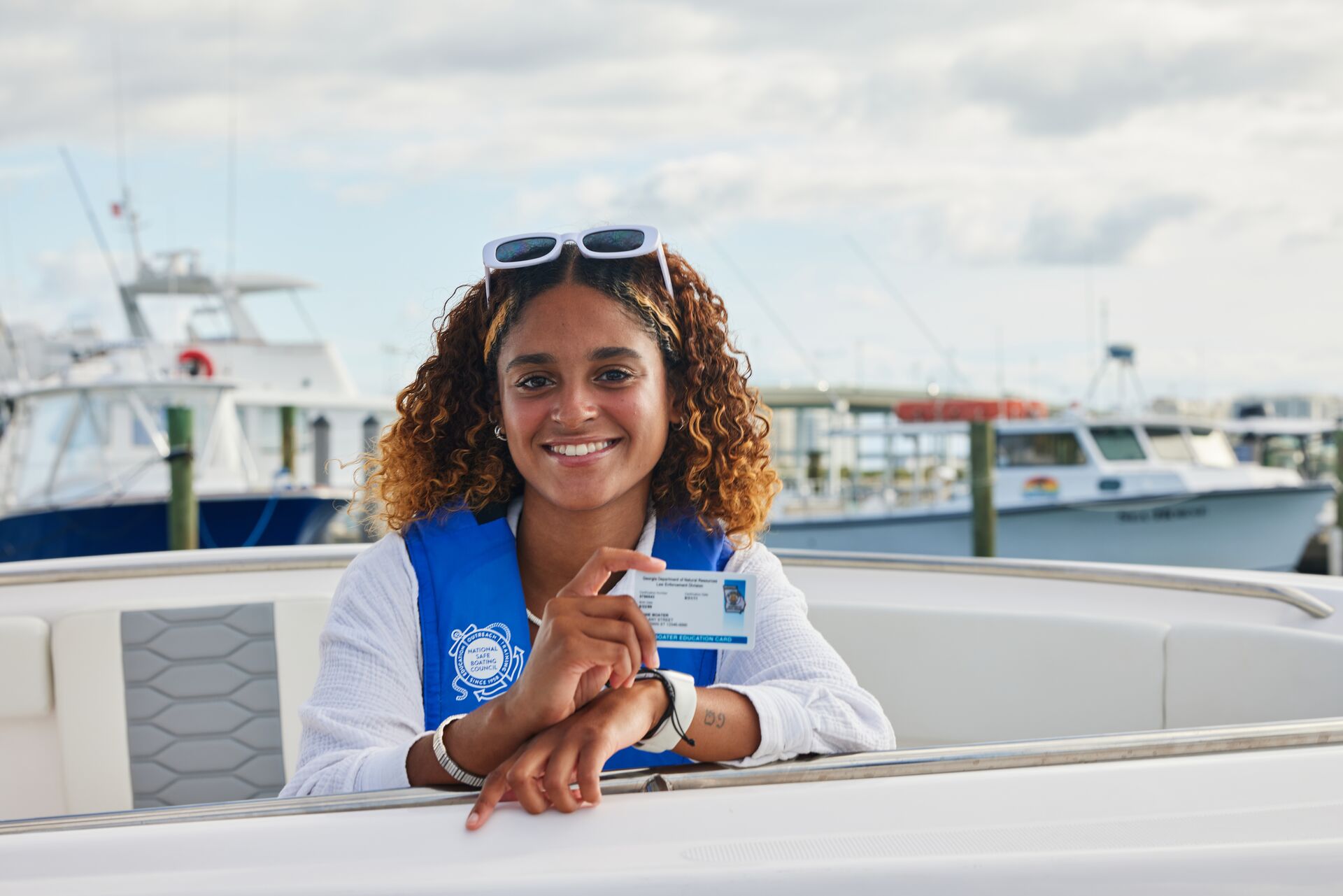
Boating is one of the best ways to spend spring and summer days, but it's vital to do it responsibly. One way to do that is to always have life jackets, fire extinguishers, and other boating safety essentials onboard.
Another is to follow the rules and regulations, including having the proper license to operate your boat.
So, what states require a boating license? You might be surprised at which ones do and don't. Here's what you need to know about boating licenses, why they're essential, and whether you need one for your state.
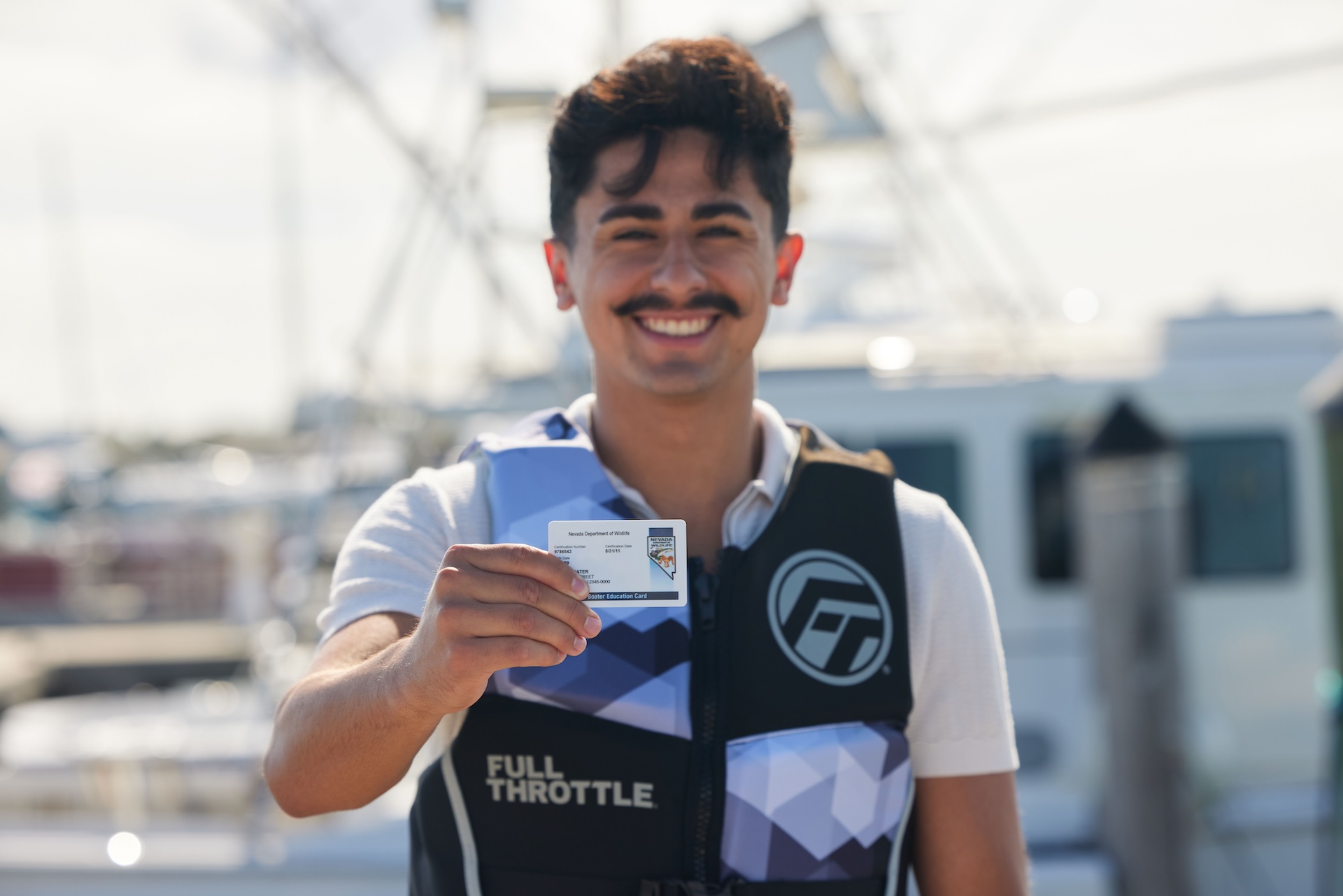
Why Boating Licenses Matter
Safe and responsible boating is vital to everyone's enjoyment of the water. When careful, you help protect yourself and your passengers and reduce risk for other boaters, swimmers, waterskiers, and the environment, including marine life.
A boating license ensures all boat operators know navigation rules, state-specific regulations, safety equipment, and more. Operating a boat without a license when you're legally required to have one can have serious consequences, including accidents and fines.
What Is a Boating License (and Why Is It Important)?
A boating license, sometimes called a boating safety certificate, is often required to operate a motorized vessel legally. A state recognizes a certification from a boater safety course to award you with a boater card or license.
Additionally, licensing courses cover environmental awareness topics like protecting wildlife and local waterways.
Legal compliance is another critical factor in boating licenses. Adhering to state laws can avoid fines, penalties, or accidents. Some insurance companies also offer discounts to boaters with licenses or certificates.
You'll carry this card or license with you every time you're on the water as proof that you've passed a safety course and to comply with the laws requiring boat operators to have a valid license.
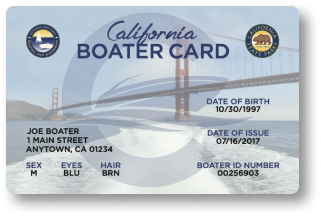
States That Require Boating License Cards
Licensing requirements vary by state. Some mandate licenses for all operators, while others require licenses only for specific age groups or vessel types.
States with strict licensing requirements include New York, Florida, and California, while states like Alaska and Wyoming don't require a license but have safety regulations.
As of 2025, here's a quick overview of the boating license requirements by state when boating on local waterways:
| Alabama: Anyone 12 years old or older | Missouri: Everyone born after January 1, 1984 |
| Alaska: Recommended but not required | Montana: Thirteen and 14-year-olds operating craft with engines over 10hp |
| Arizona: Recommended but not required | Nebraska: Anyone born after December 31, 1985 |
| Arkansas: Everyone born after January 1, 1986 | Nevada: Everyone born after January 1, 1983, operating a vessel with a motor of 15hp or higher |
| California: As of 2025, everyone operating a motorized vessel must have a California Boater Card, regardless of age | New Hampshire: Everyone 16 or older operating a vessel with a motor over 25 hp |
| Colorado: 14-17 years old | New Jersey: Everyone, regardless of age |
| Connecticut: Residents or anyone who owns property in Connecticut and operates a motorized vessel | New Mexico: Everyone born after January 1, 1989 |
| Delaware: Everyone born after December 31, 1977 | New York: As of January 1, 2025, everyone operating a motorized vessel is required to have a boating safety certificate |
| District of Columbia: Everyone | North Carolina: Anyone born after January 1, 1988 |
| Florida: Everyone born after January 1, 1988, operating an engine 10hp or higher | North Dakota: Everyone between 12-15 years old needs boater education to operate a motorized vessel |
| Georgia: Everyone born after January 1, 1998 | Ohio: Everyone born after January 1, 1982, operating a boat with 10hp or higher |
| Hawaii: Everyone, regardless of age | Oklahoma: Everyone from 12 to 15 years old |
| Idaho: Recommended but not required | Oregon: Everyone operating a vessel with a motor over 10hp |
| Illinois: Everyone born after January 1, 1998 | Pennsylvania: Everyone born after January 1, 1982, operating engines over 25hp or any PWC |
| Indiana: Valid driver's license, except for 15-year-olds who can have a valid ID card and boater course | Rhode Island: Everyone born after January 1, 1986, operating engines over 10hp or any PWC |
| Iowa: 12-17 year-olds operating boats with engines over 10hp | South Carolina: Everyone born after July 1, 2007, operating engines over 15hp unsupervised |
| Kansas: Everyone born after January 1, 1989, or under 21 years old | South Dakota: Recommended but not required |
| Kentucky: Certification for 12- through 17-year-olds | Tennessee: Residents of Tennessee born after January 1, 1989 |
| Louisiana: Everyone born after January 1, 1984, and operating a PWC or motorboat over 10 hp | Texas: Everyone born on or after September 1, 1993, to operate vessels more than 15 hp or a windblown vessel more than 14 feet long |
| Maine: Anyone born after January 1, 1999, operating a motorboat greater than 25 hp or a PWC. | Utah: PWC operators 12 to 17 |
| Maryland: Everyone born after July 1, 1972 | Vermont: Everyone born after January 1, 1974 |
| Massachusetts: Anyone born after January 1, 1989, has until April 2026 to get a boater education card. Anyone born on or after January 1, 1989, must get their certificate before April 1, 2028. | Virginia: Ages 14 years and older operating a PWC or motorboat of 10 hp or more |
| Michigan: Everyone born after June 30, 1996 | Washington: Everyone operating engines with 15hp or higher |
| Minnesota: As of July 1, 2025, anyone 21 years and younger must have a valid watercraft operator's permit (boater card). Adults born on or after July 1, 2004, must have a watercraft operator's permit before operating a motorized vessel, including a PWC. | West Virginia: Everyone born after December 31, 1986 |
| Mississippi: Everyone born after after June 30, 1980 | Wisconsin: Everyone born after January 1, 1989, and at least 12 years of age |
Wyoming: Recommended but not required |
Remember, you should always check your state's rules through official sources, as requirements can change.
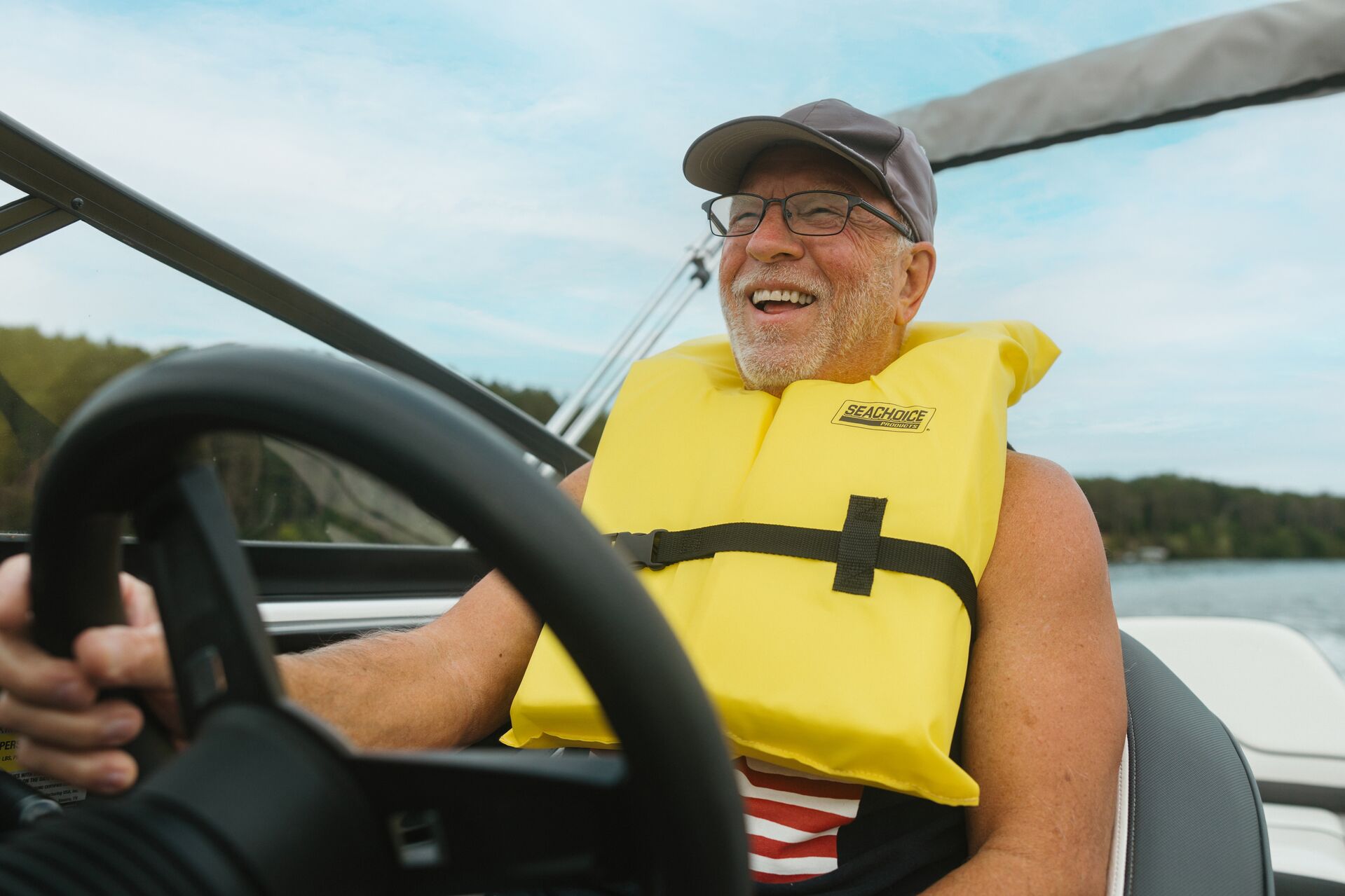
How to Get a Boating License
The first step in getting a boating license is to research your state's requirements. State boating agencies or the National Association of State Boating Law Administrators (NASBLA) can help.
Next, take an approved course, such as the ones offered through Boat-Ed. In most states, there are in-person and online course options. Boat-Ed courses meet all state requirements for licensing and education, making it quick and easy to get certified before hitting the water.
After you take the course, you'll need to pass the exam. Typical topics covered include navigation, rules of the waterways, and emergency procedures. Passing the exam gives you a certificate that you'll need to have with you while you're operating a boat.
Tips for Boating License Success
Some of the best tips for getting your boating license quickly and staying safe while boating includes:
- Start the process early to get your boating license, especially before peak boating season.
- Practice with experienced boaters to gain confidence on the water.
- Keep your license or certificate on board to avoid trouble during inspections.
With your license and a little practice, you'll be boating safely and confidently in no time!
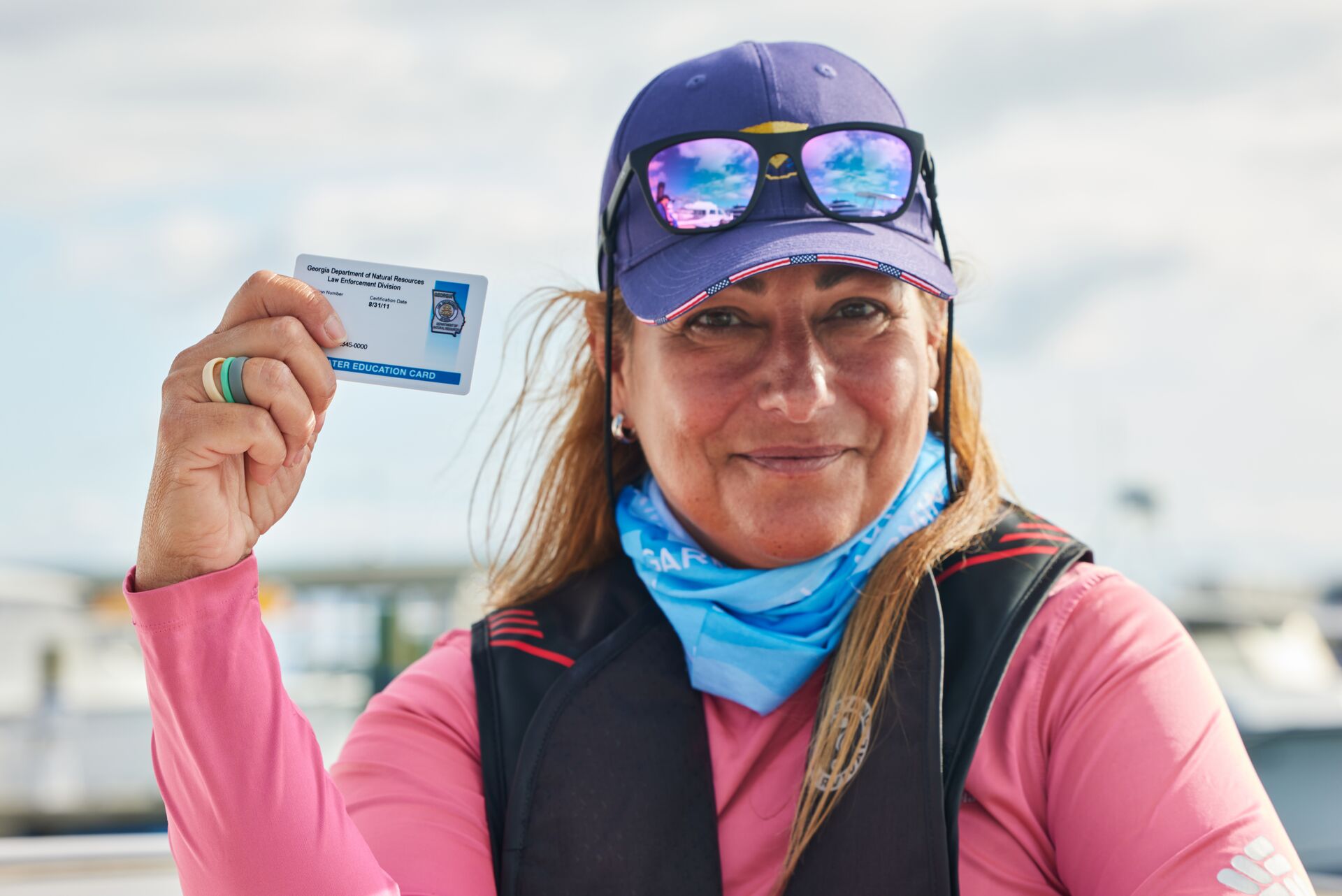
Take Your Boat Education Course Today (So You're Ready for Spring)!
Is yours one of the states that require boating license cards? Whether your state requires it or not, it's essential to prioritize safety and legal compliance every time you leave the dock for a day on the water — and you can do that by getting your certification.
Plus, a boater education course is a good idea even if your state doesn't require it.
Take the boat education course for your state today (or soon) to make sure you're ready to hit the water when it's time to launch again this spring!
Whether you need it to comply with state requirements or not, the course is full of helpful information to help reduce risks and increase enjoyment on your boat.

